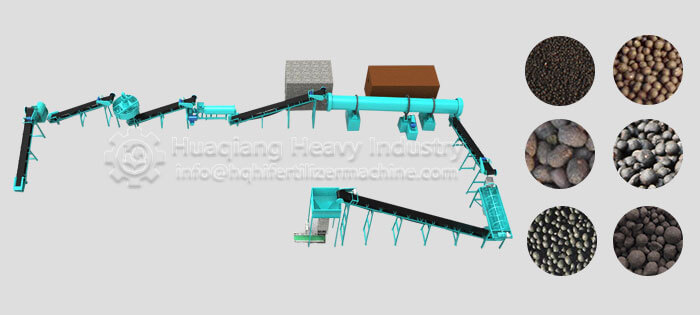
It is very important to ensure the stability of the organic fertilizer production line during the fermentation process. The following are some ways to ensure the stability of the organic fertilizer production line fermentation process:
Raw Material Management
1. Quality control
Ensure that the quality of raw materials (such as livestock manure, crop straw) for organic fertilizer production lines is consistent. Check impurity levels and moisture content. Excess moisture (over 60%) can block airflow, while low moisture (under 40%) may hinder microbial activity. Aim for 40-60% moisture.
2. Mixing uniformity
Thoroughly blend raw materials using proper mixing equipment. Uneven mixing leads to inconsistent nutrient distribution, affecting fermentation efficiency.
Microbial Management
1. Strain selection
Choose adaptable, high-performance microbial strains. Composite strains often work best for breaking down diverse organic materials.
2. Inoculum dosage
Maintain proper microbial quantity. Insufficient amounts delay fermentation startup; excessive doses trigger competition. Monitor and adjust as needed.

Environmental Control
1. Temperature regulation
Keep fermentation temperature stable at 50-60°C for aerobic processes. Use sensors with heating/cooling systems to minimize fluctuations.
2. Aeration and humidity
Ensure adequate oxygen supply through ventilation. Maintain 40-60% humidity using monitoring devices to prevent anaerobic conditions or waterlogging.
Equipment Maintenance
1. Routine checks
Regularly inspect mixers, heating systems, and ventilators. Ensure even mixing to avoid localized overheating or material clumping.
2. Post-process cleaning
Remove residue after each batch to prevent contamination from residual microbes.
In summary, by implementing the above methods, the stability of the fermentation process of the organic fertilizer production line can be guaranteed, and high-quality organic fertilizer can be produced.